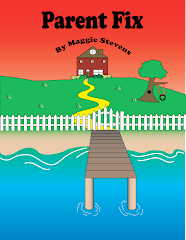How do you approach the change of tween to teen
Not only is this a very puzzling time for you as a parent, it is a very confusing time for your child. Emotional outbursts, meltdowns, and stupid decisions will leave parents dumbfounded as what to do.
(How many teens does it take to change a light bulb? Only one. Your teen holds the light bulb in the socket and the whole world revolves around her.)
Question from a recent workshop:
“I find myself getting angry with my kids much too often. I can't seem to help myself – they really know how to push my buttons. When they purposely disobey me, or are outright disrespectful, I fly off the handle. How can I control my own anger when it's the kids' misbehavior that makes me so mad?”
Educate yourself about the development your tween is experiencing
It is easier to be patient and understanding with your tween if you know that most of their behaviors are the result of a physical change.
According to Dr. Jay Giedd (who has devoted the last 13 years using MRI’s to peer inside the heads of teens) the brain develops in stages. The final part of the brain to develop is the part capable of making organized decisions. For example, Do I finish my homework, or clean my room or go see a movie with my friends? Most teens will choose the movie. Which drives a parent crazy thinking their child is irresponsible. (Sometimes as an adult I think it would be good for all of us if occasionally we could all drop our responsibilities and be spontaneous like a tween.) Be patient with your tweens as they learn to be responsible There are some things you should do when when you try to reason with a teen. they will comprehend when you give immediate results. For example, “If you choose to drink alcohol on the weekends, you will probably get kicked off the football team.” Rather than “Your health will suffer” or “You will end up an alcoholic, living on the streets.”
Remember that your teenagers behavior is not just his pigheadedness to drive you crazy. In reality, they need you to teach them and be patient with them. Think about it. Is it your children's misbehavior that makes you angry? Or is it your view of their behavior that creates angry feelings? There's a big difference. The first question suggests that you have no control over your emotions or actions. The second implies that by changing your view you can change your reaction.
Top Four Tween Behaviors that Drive You Crazy and Solutions
Behavior: Emotional Outbursts (Flipping out at a simple request from mom, Blaming parents for making them late, or saying mean things to mom or dad)
Time out is for big people. too. Put some space between you and the child who's pushing your buttons. When you feel your anger rising, put yourself there! A few minutes away from the source of your angry feelings can help you calm down enough to address the situation rationally. Nothing can be solved in a fit of anger. You'll be better off if you take the time to calm down and then approach your child from a position of strength
Behavior: Sleeping In All The Time
What's normal? Learn more about child development by reading a book or taking a class. If you learn that your child's current behavior is age-appropriate and normal, you'll be less likely to overreact to the behavior. It's amazing how alike children are, and just knowing that your kid is responding in a typical way can help you handle the issue with a level head. There are many books, the internet and psychologists you can consult. (Parents go crazy when their kids sleep in late or all day long. In an adult, the melatonin in your body increases in the evening creating your body to start shutting down. In the brain of a teen the melatonin is programmed for a later hour than an adult. That is why they stay up late and then struggle to get up in the morning.)
Behavior: Stupid Decisions (Tween driving without a license)
3. Act – don't react. Take the time to think about the things that make you angry. Put together a list of family rules. Enumerate the consequences for breaking the rules. Communicate clear expectations to your children. Decide in advance and with your child what methods of discipline you will use. If you have a plan up front, you'll be less likely to lose control when your children misbehave. For example if you find out your son has been driving the family car and he is not yet 16. In this situation, ask your self why your son is stealing the car? He obviously is excited about driving. So take him out driving. This will give you the opportunity to teach him how to drive correctly. Drive with him often. So often he begs to stop. The stupid decision he has made will stop.
Behavior: MeltDown (Crying, Stressing Out, Not able to deal with a situation)
4. Hug 'em. When you find yourself ready to put your hands around your kid and shake him, DO put your hands around him – and love him. Embrace him in a hug. If possible, do this in front of a mirror or reflective window. A few minutes of quiet, while you embrace your child, will often temper your angry feelings with the strong feeling of love between you.
Monday, October 25, 2010
Subscribe to:
Comments (Atom)




